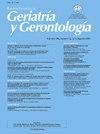老年患者合理使用抗精神病药物:定性方法
Q3 Medicine
引用次数: 0
摘要
背景与目的抗精神病药物常用于老年患者。本研究的目的是探讨妨碍阿根廷某医院这一人群合理使用药物的障碍。这是一项定性研究,基于对门诊诊所各专业医生的10次半结构化个人访谈,于2022年5月至11月期间进行。重点是确定老年患者人群中与抗精神病药物处方有关的认知和做法。结果指出了合理使用抗精神病药物的各种困难:a)处方问题,如主要根据专业人员的经验选择药物,倾向于使用低剂量和短期治疗,而不考虑患者的临床进展;B)低估老年患者人群的代谢副作用;C)卫生保健系统的局限性,例如难以获得精神病学和其他医学专业之间的会诊,以及培训不足;D)患者或家庭的偏好经常与医疗建议相冲突。结论老年患者合理开具抗精神病药物处方存在障碍,包括精神科医生和其他专科医生。这些困难可能会影响这一脆弱人群治疗的有效性和安全性。突出显示这些信息可以帮助医疗保健组织制定提高护理质量的策略。本文章由计算机程序翻译,如有差异,请以英文原文为准。
Uso racional de antipsicóticos en pacientes mayores: un abordaje cualitativo
Background and objective
Antipsychotics are frequently prescribed in elderly patients. The aim of this study was to explore the barriers that hinder their rational use in this population in a hospital in Argentina
Method
A qualitative study based on ten semi-structured individual interviews with doctors from various specialties working in outpatient clinics, conducted between May and November 2022. The focus was on identifying perceptions and practices related to the prescription of antipsychotics in elderly patient populations.
Results
Various difficulties in making rational use of antipsychotics were identified: a) Prescription issues, such as drug selection primarily based on the professional's experience and the tendency to use low doses and short-term treatments without considering the patient's clinical progression; b) underestimation of metabolic side effects in the elderly patient population; c) limitations of the healthcare system, such as difficulty in accessing consultations between psychiatry and other medical specialties, and deficiencies in training; d) patient or family preferences that often conflict with medical recommendations.
Conclusions
Barriers to the rational prescription of antipsychotics in elderly patients were identified, both among psychiatrists and doctors from other specialties. These difficulties could compromise the efficacy and safety of treatment in this vulnerable population. Highlighting this information could help healthcare organizations develop strategies to improve the quality of care.
求助全文
通过发布文献求助,成功后即可免费获取论文全文。
去求助
来源期刊

Revista Espanola de Geriatria y Gerontologia
Medicine-Medicine (miscellaneous)
CiteScore
1.90
自引率
0.00%
发文量
62
审稿时长
85 days
期刊介绍:
Una revista de gran prestigio por sus artículos originales de investigación y revisiones. Permite cubrir todas las áreas de la medicina pero siempre desde la atención al paciente anciano, y está presente en los más reconocidos índices internacionales.
 求助内容:
求助内容: 应助结果提醒方式:
应助结果提醒方式:


